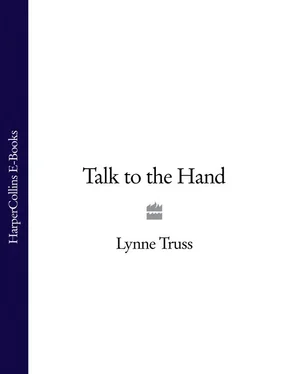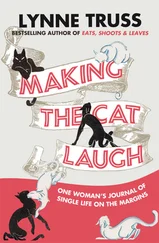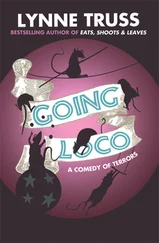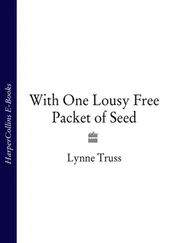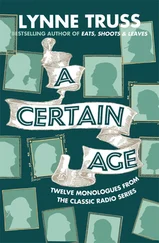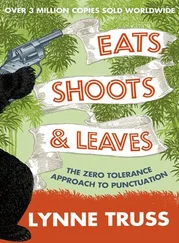Philosophers are, of course, divided on all this – but then most of them didn’t live in the first years of the twenty-first century. Aristotle said that, if you want to be good, it’s not a bad idea to practise (I’m paraphrasing). In the seventeenth century, Thomas Hobbes said that the rights and wrongs of picking your teeth weren’t worthy of consideration (I’m paraphrasing again). In the 1760s, Immanuel Kant said that manners could not be reckoned as virtues, because they called for “no large measure of moral determination”; on the other hand, he thought they were a means of developing virtue. In November 2004, however, the philosopher Julian Baggini wrote in The Guardian , rather compellingly, that our current alarm at the state of manners derives from our belated understanding that, in rejecting old-fashioned niceties, we have lost a great deal more than we bargained for:
The problem is that we have failed to distinguish between pure etiquette, which is simply a matter of arbitrary social rules designed mainly to distinguish between insiders and outsiders; and what might grandly be called quotidian ethics: the morality of our small, everyday interactions with other people.
My small, personal reason for not writing a traditional etiquette book is not very laudable, but the phrase “a rod for one’s own back” is a bit of a clue to the way I’m thinking. If my experience as Queen of the Apostrophe has taught me anything, it has impressed on me that, were I to adopt “zero tolerance” as my approach to manners, I would never again be able to yawn, belch, or scratch my bottom without someone using it as watertight proof that I know not whereof I speak. Is it worth it? Zero Tolerance Manners Woman Ignores Person Who Knows Her Shock. “She walked straight past me,” said wounded friend of 25 years, who was recovering yesterday at home. “She is also rubbish at punctuation, if you ask me. You should see her emails.”
Plus, in all seriousness, there are many etiquette issues on which a zero tolerance position cannot be sensible. Take the everyday thorny problem of modern forms of address. I receive many letters which begin, “Dear Ms/Miss/Lynne Truss”, immediately followed by a heartfelt paragraph on the difficulty of addressing women whose marital status is unclear. Well, I sympathise with this difficulty, of course, and I am sorry to be the cause of it. I know there are many people who dislike being addressed without a title, so I appreciate that my correspondents are worthily trying to avoid being rude. However, as it happens, I loathe the whole business of titles, and prefer to do without one wherever possible, considering this a simple solution to an overelaborate problem. True, having ticked “Other” on a number of application forms, I now receive post bizarrely addressed to “Other Lynne Truss”, which is a bit unsettling for someone with a rocky sense of identity, but this is still better (in my view) than going along with this outmoded Miss/Ms/Mrs thing. My point is: there is no right and wrong in this situation. Who could possibly legislate?
We all draw the wavy contour line between polite and rude behaviour in a different place, much as we draw our own line in language usage. That’s why we are always so eager to share our experiences of rudeness and feel betrayed if our best friends say, “Ooh, I’m not sure I agree with you there; perhaps you’ve got this out of proportion.” In Eats, Shoots & Leaves , I alluded to Kingsley Amis’s useful selfexempting system of dividing the world into “berks” and “wankers”: berks being those who say, “But language has to change, surely? Why don’t we just drop that silly old apostrophe?”, and wankers being those who say, “I would have whole-heartedly agreed with you, Ms Truss, if you had not fatally undermined your authority by committing a howler of considerable dimensions quite early in the book, on page 19. I refer, of course, to the phrase ‘bow of elfin gold’. Were you to consult The Letters of J. R. R. Tolkien (Boston: Houghton Mifflin, 1981), you would find in letter 236 that Professor Tolkien preferred the term ‘elven’ to ‘elfin’, but was persuaded by his editors to change it. Also, it was the dwarves who worked with gold, of course; not the elves. Finally, as any student of metallurgy would instantly confirm, gold is not a suitable element from which to fashion a bow, being at once too heavy and too malleable. With all good wishes, enjoyed your book immensely, keep up the good work, your fan.”
The idea of the Berk–Wanker system is that each of us feels safe from either imputation, because we have personally arrived at a position that is the fulcrum between the two. You may remember how the BBC always answered criticism years ago: “I think we’ve got the balance just about right. ” Well, my point is: our attitude to manners is similarly self-defined and self-exonerating. Each of us has got it just about right. If there is something we are particularly good at, such as sending thank-you notes, we are likely to consider the thank-you note the greatest indicator of social virtue, and will be outraged by its breach. In an essay on press freedom in 1908, “Limericks and Counsels of Perfection”, G. K. Chesterton saw this subjective rule-making as sufficient reason in itself for not attempting to enforce manners:
We are justified in enforcing good morals, for they belong to all mankind…[but] we are not justified in enforcing good manners, for good manners always means our manners.
Basically, everyone else has bad manners; we have occasional bad moments. Everyone else is rude; we are sometimes a bit preoccupied.
So, if this book is not a guide to manners, what is it? And what are those six good reasons to stay home and bolt the door? Well, my only concern in this book is to define and analyse six areas in which our dealings with strangers seem to be getting more unpleasant and inhuman, day by day. It seemed to me, as I thought about the problem of rudeness, that it might be useful to break it down. Manners have so many aspects – behavioural, psychological, political, moral – yet we react to rudeness as if it is just one thing. Understanding things sometimes helps to defuse them. Maybe I will save the world from philistinism and yobbery with my six good reasons. Failing that, however, I have the small, related hope that I may at least save myself from going nuts.
1 Was That So Hard to Say?
“What ever happened to thank you?” we mutter. Ask anyone about the escalation of rudeness, and their first example is likely to be a quite animated description of how they allowed another car to pass last Wednesday, and received no thanks or acknowledgement; not even an infinitesimal nod accompanied by a briefly extended index finger, which is (curiously) usually good enough for most of us.
What has happened to the rituals of what Goffman called “supportive interchange”? They have gone disastrously awry, that’s what. Last year I was a passenger in another woman’s car in Denver, Colorado. Waiting at a junction, we received a wave from two young men in a car alongside. I smiled back, and then asked my companion whether the chaps might want something. She opened my window and called across, “Can I help you?” At which the driver of the other car stopped smiling and yelled, “What do you mean, can I help you? I was only being Effing friendly! Why don’t you get back to your Cherry Creek Country Club, you rich bitches!” and drove off. Of course, we were both taken aback. My companion, interestingly, was upset most by the insulting accusation of wealth. It annoyed her very much to be called a rich bitch. For my own part, however, I just kept thinking, “But surely a simple ‘No, thank you’ would have sufficed? What was wrong with ‘No, thank you’ in that situation?”
Читать дальше
